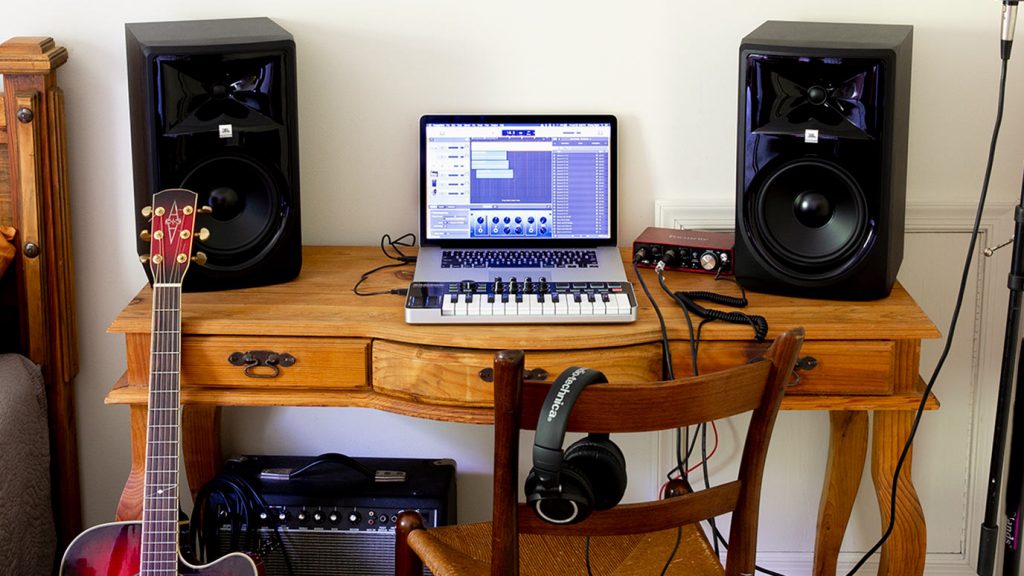Top 10 Tips to Help You Effortlessly Finish Your Tracks
How to Finish Music and Be A Successful Musician
Welcome to the abys. Here, it’s a cold and dark place. It’s frustrating, lonely, and… quiet.
Being unable to finish a track is one of the most common places that many musicians find themselves in. Follow some bigger artists on Twitter and you’ll begin to hear about their own experiences where they thought they wouldn’t have a career.
Without further ado, let’s jump into some useful tips that you can use immediately to get your creations back on track.

- Listen to What You’ve Got
Counter to the popular saying “look where you’re going, not where you’ve been”, it’s a good idea to listen to everything that you’ve made. Even if some of the projects are trivial 8 bar loops that sound barely started, it’s good to take note of what’s in your Projects folder. I guarantee there is stuff in there that you were once in love with and no longer think about.
It’s also handy to listen to the project you want to work on before you begin developing the track further. Critically listen to your track without your computer screen on (to remove distractions), focus on what the track sounds like now and take notes on what it needs to progress to the next step. By doing this each time you enter a session, you will naturally create goals for yourself to continually move forward. - Make A List of What Needs to Be Done
Okay, so now we start getting to business. You’ve heard what you’ve got, so now you need to plan.
YOU NEED TO CREATE A SYSTEM AND STICK TO IT.
For example:
Track X: Add chord progression
Track X: Program drums
Track Y: Write 16 bassline
Track Z: Write 8 bar build up
Keep your music production in a firm, strict, sequential order. Don’t be fooled into thinking ‘art can’t be scheduled’. For a long time I was unable to finish my music, but I was going wrong because I had no system in place. Therefore, projects were being left at different places in the writing process and that makes them unattractive to jump back into.
But you already knew that. - Set Small Goals to Achieve a Bigger Mission
Before you run in all guns blazing, think about how you’re going to approach this.
Always begin with the end in mind.
What do you want out of this session? Give yourself an agenda that you, and only you, are responsible for seeing through. Break your list down so that you’re not overwhelming yourself.
For example:
Program Drums for Track X
1. Record a Kick Sample
2. Play with Snare Samples
3. Record Hat Rhythm
4. Mix Together - Make a Commitment
This one is self explanatory. If you want to get Track X, Y & Z finished, you have to organise, plan & commit to your projects. Performing smaller tasks to meet a bigger picture is the key to progress, but committing yourself is the golden ticket to success. - Set Deadlines and tell People About Them
Points 4 & 5 go hand in hand.
Plan what you want to do and commit to getting it done by a set day. The longer you maintain this system the easier it will become… and the more satisfaction you will get out of it! You’ll also get your music finished faster – an added perc! - Have Your D.A.W Always Set Up – Use Templates!
Imagine that 1 click = 1 second. So, if you can save yourself 1000 clicks per track… you know, maths and stuff. With that said, we highly suggest you organise your D.A.W into a set preset and save it as your D.A.W’s default file – so whenever you open your D.A.W, your preset is already in front of you.
Of course, you won’t be able to get every plugin you’ll eventually need for a track that doesn’t exist yet into your default mixer, but you already have ones you use more than others, so include those. - Prioritise Your Tracks and Just Do it!
Okay, so you’ve made your list. You’ve concocted a plan. You’re ready to get those drums down by Tuesday. Your D.A.W is burning energy as it sits and waits for you to command it.
And now you have to motivate yourself to only work on this track until you’re happy with it. You’ve broken the process down into realistic & achievable goals. So, make sure you complete the mission (song). Getting distracted and working on another project is what got you into this mess. - Let Go of Perfection
This is something that everyone learns to get over. There is room for improvement in everything you see, hear and do yourself. The problem is, it’s all too easy to hunt down “perfection”… but it’s a dead end. One that will only lead you to false sense that you won’t “make” it.
We advise you to listen to the very first song that your favourite artists posted on their online accounts. SoundCloud will probably be your best bet for an honest listen. Every artist wants their song to be perfect, but no artist feels like they ever make the perfect song. - Focus on Your Strengths. Outsource the Rest.
This is a controversial point, but hear us out.
If you are just starting out – don’t do your own mixing and mastering. It will slow you down… a lot. Pay somebody else to do it. Skrillex is one of the most sought after mixing engineers in the electronic community because producers at the top of the food chain understand that if they do everything themselves their release rate will be halved.
Why did you get into music? Because you wanted to release great music or because you want to be the best at everything in the production process?
By all means, learn to mix and master your tracks while somebody else does the official mix & master. This is our personal favourite way to get it done. I want the knowledge & skill, but I also want to be releasing music. So, I compromise – and there’s nothing wrong with that. - Reward Yourself
We all love to treat ourselves, right? Create a reward system for yourself when you finish each song! Get yourself some cinema tickets or go out for a meal or go and see a live act! The amount of work that goes into making music is heavily underestimated, so turn it into a system where the work pays off in a way that’s right for you.
If you’re struggling to get ideas or inspiration, you can find more tips like this in our other post HOW TO BEAT WRITERS BLOCK. Some tips may work more than others, but if you have a disciplined system that works for you, we truly believe you’re onto a winner.
